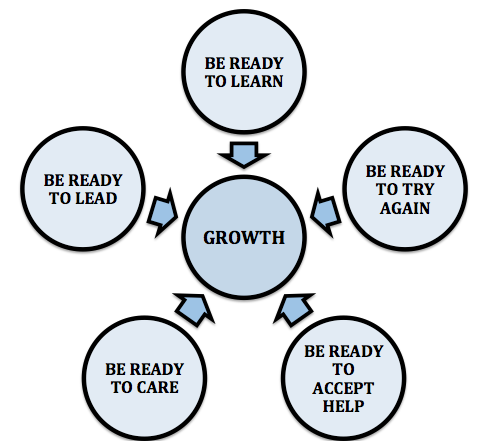PBIS and Growth Mindset
How one school turned towards growth mindset to alter its PBIS program.
By Jenny Nauman
Communicator
March 2017, Volume 40, Issue 7
Like many schools across the country, Shields Elementary in Lewes, Delaware, has used a Positive Behavior Interventions and Support (PBS/PBIS) program for many years. A PBS system can make a remarkable difference in the discipline, learning, and overall climate in an elementary school. To lead our PBS efforts, a committee meets monthly and in the summer, and we are continually looking for ways to make our school better for our students.
Two years ago, we had an effective team with effective rules, but had some processes that weren’t sitting well with some team members. In the past, we used a clip chart system for behavior, which included the ability to move up for good behavior. Each color had a consequence and a reward that was posted for all to see. This worked for us for two years, but then started to have a negative impact on our families. Students were identifying themselves by the color they were on for the day: “I was yellow today.” And instead of parents asking their child, “What was your favorite part of your day?” they were asking, “What color were you on today?” The clip chart system’s method of public sharing or shaming student behavior was beginning to affect the classroom communities.
The staff knew that a change was needed but we weren’t sure which direction to go until we read and discussed the book Mindset by Carol Dweck. In a growth mindset, Dweck writes, people believe that their most basic abilities can be developed through dedication and hard work—brains and talent are just the starting point. This view creates a love of learning and a resilience that is essential for great accomplishments. We began having more discussion on mindset and teachers began using principles in their classrooms. The change was not made from the top, but from a grassroots effort supported by the administrators. Our school social worker and one of our experienced teachers spent their summer poolside changing our school rules into growth mindset-based rules that have both academic and behavioral expectations.

Richard A. Shields Elementary PBIS Growth Mindset School Rules
We are in our second year of implementation of these rules and we are continuing to improve our practices. Of course, the change was more systemic than just our rules: We use Restorative Practices, Second Step, and PBS to help our students. When students are not following the rules we use logical high-level, middle-level, and low-level consequences for behaviors. Students are engaged in the new system and understand they should work hard and be ready to try again If needed. We are working to create a culture where we learn from our mistakes and see them as only a small stumbling block towards success. There has been ongoing professional development with our staff and some training for our families as well on the new system.
In true growth mindset fashion, we used feedback from surveys that were given to parents, students, and staff to reset our PBS program and retrain staff. We work hard at Shields Elementary every day to ensure we are living up to our mission: Having Fun, Dreaming Big, and Always Growing! By focusing on positive behavior efforts and consequences on growth mindset principles, we have been able to strengthen our culture and create a love of learning and grit to allow our students to be successful now in school and later as citizens.
Jenny Nauman is principal of Shields Elementary School in Lewes, Delaware.
—
Copyright © 2017. National Association of Elementary School Principals. No part of the articles in NAESP magazines, newsletters, or website may be reproduced in any medium without the permission of the National Association of Elementary School Principals. For more information, view NAESP’s reprint policy.


